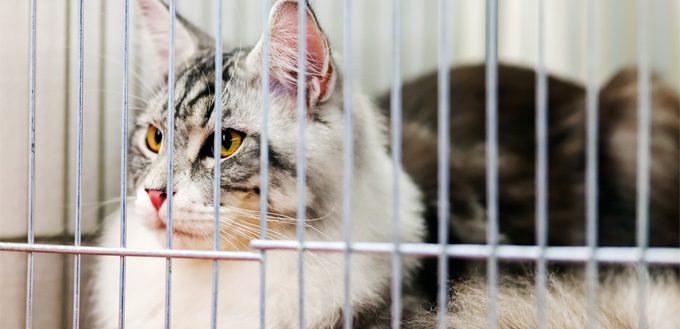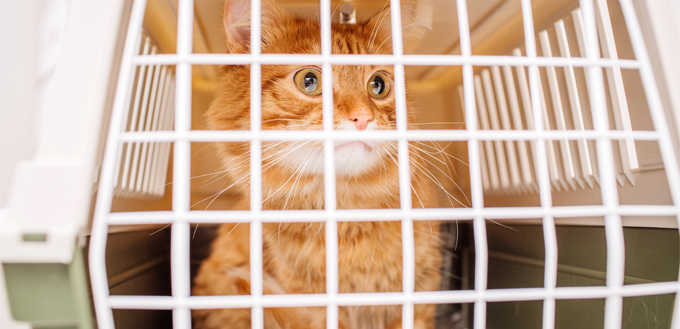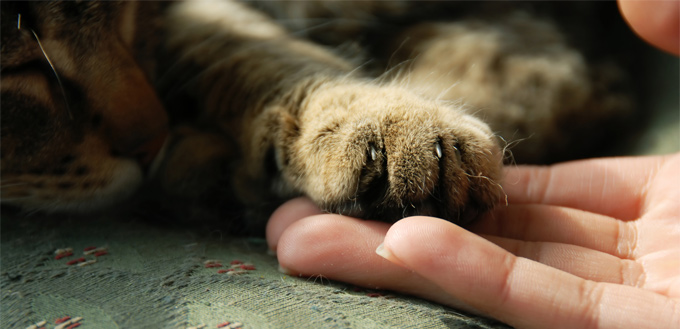Adopting a cat can be a very rewarding experience as it gives you a chance to embark on a wonderful and mutually-beneficial relationship with one of the planet’s most adorable beings. However, adopting a cat typically entails quite a handful of changes for both the adopting cat parent and the adopted cat. As such it is crucial to make a very careful assessment of your readiness for becoming an adoptive cat parent. We’ve compiled a list of the things you have to review before adopting a cat. Ready?
Do You Have a Shortlist of the Specific Breed of Cat to Adopt?
Adopting a cat usually means getting a pet that matches well with your personality. There are cats that are very active which makes them ideal for individuals who lead an active lifestyle as well. There are cats that are naturally more docile that they don’t really mind lying all day, snuggling up to their owners. There are also kitties that require very frequent, meticulous grooming. Take your pick. Different cats have different care requirements, temperaments, and behaviors. It is imperative that the cat you’re going to adopt is one that you can really care for; otherwise, it will only end up in another shelter several months from now.

There are plenty of resources online that can provide you with very detailed information about the characteristics of different cat breeds. While these are written in the general, at least you’ll have an idea of what to expect. You’ll gain knowledge on what to feed a particular breed of cat, whether it needs exercise or not, or what health problems you may have to face in the future. The point is to always choose an adoptive cat that you can confidently manage.
What you can do is to create a list of all the things that you can and willing to do for a cat. Once you have this listed down, you can then start searching for a cat breed that fits your needs perfectly. For example, if one of your requirements is a low shedding cat, then you’re down with a Siamese, a Sphynx, a Devon or Cornish Rex, a British Shorthair, or even a Japanese Bobtail. At least, you now have 6 breeds to choose from.
Are You Aware of How Much It Costs to Adopt a Cat?
If a friend gives you a cat, then there’s a chance that he or she will give this cat to you for free usually as a token of your friendship. Some neighbors do this, too. However, if you are going to adopt from an animal welfare organization, know that this will typically entail an adoption fee.
Depending on where you live, the age of the cat that you are going to adopt, and some other factors that may vary from one agency to the next, you can expect to shell out as little as $25 to as much as $255. Generally speaking, a kitten adoption will cost you more than an adult cat. To give you an example, a 5-month old kitten will usually cost you $125 in adoption fees compared to a 5-year old cat which can only set you back by around $25 to $50. This should be factored into your decision.
When looking at the cat adoption fee, it is critical to check what is already included in the fee. For instance, does it already include vaccination or immunization? Does it include micro-chipping? How about the screening test for the Feline Immunodeficiency Virus and the Feline Leukemia Virus? Does the adoption fee already include a post-adoption visit to a veterinarian that the agency has a partnership with? Does it already include spaying or neutering services? How about flea treatments or even deworming?
Related Post: Best Cat Flea Treatment
If these are already included in the adoption fee, then you will no longer have to worry about such things. But if they are not yet included or includes only some, then you’ve got to take responsibility for such treatments, procedures, or activities for your adoptive cat. Are you ready for such a responsibility?
Check out our New Cat Cheat Sheet.
Are You Ready to Provide It with Only the Best Cat Food?
One of the keys to a kitty’s happiness is optimum nutrition. Your adoptive cat will need only the best cat food money can buy. Unfortunately, the cat world is divided as to what constitutes the best food for cats. There are those who say that dry cat food is the best since it has more calories and sufficient amounts of proteins. Best of all, it doesn’t spoil easily and, thus, makes for a very economical option.
On the other hand, proponents of wet cat food say this is the best for kitties because it mimics their diet in the wild. As wild cats prey on small animals, they derive all of their nutrient requirements and even water from these animals. The same is true with wet cat food as it has a substantially higher proportion of proteins than kibbles while also giving cats the moisture they need. The main issue, of course, is the cost. Canned kitty food is more expensive and it can spoil relatively quickly once already opened.
You may also need to consider getting a feeder especially if you will be leaving your cat alone in your house as you go to work every day. These devices can be automatically programmed to deliver just the right amounts of cat food at predetermined times of the day. There are also cat feeder systems that work to slow down your cat’s tendency to gobble up its food (yes, there are breeds that eat like dogs). These are designed to make it extra-challenging for cats to obtain their food. It’s a great tool especially for adoptive cats that are predisposed to obesity because of the tendency to overeat and made worse by lack of physical activity.
Are You Ready to Provide It with Enough Exercise and Mental Stimulation?
Regardless of the breed of cat that you will be adopting, make sure that it will get the right amount of exercise and mental stimulation. When we say exercise, it doesn’t really have to be a highly structured exercise and fitness program that you’d have to observe for your kitty. Encouraging it to play should be enough exercise for it.
That being said, it is always imperative that you provide it with the right toys that will help not only in keeping your cat physically fit, but also mentally stimulated. There are plenty of kitty playthings that can stimulate cats. From lures to wands to laser lights, these toys can help kitties move about, stretch their muscles, and even optimize the full range of motion of their joints. This can help prevent or at least minimize the risk of joint disorders.
You may also want to get ready about getting your adoptive cat a cat scratching tower. This contraption may be viewed as absolutely unnecessary by some, but a must-have by others. In choosing the right cat tower, it is critical to pick one that comes with a variety of functions. There are those that already incorporate a sleeping area, a perching area, and a play area where it can swipe, bat, or play with a ball or feather dangling from the ledge. These cat towers should also allow for some form of customization so you’ll be able to create a contraption that is more responsive to your cat’s needs.

Related Post: Heated Cat Beds
Are You Ready to Ensure the Cat’s Optimum Comfort and Safety?
The next thing you have to check on your list is whether or not you are already committed to ensuring your cat’s optimum comfort and safety.
While cats can sleep virtually anywhere, it would be best to give it the most appropriate bed you can find. The majority of cats like to sleep curled, so a bed with high sides and shaped more like a deep nest should come in handy. There are also cats that may have joint or muscle problems that will benefit more from a special type of cat bed known as an orthopedic bed. Cats with arthritis can also benefit from a heated cat bed as this will help soothe the painful joints. For cats that are very sensitive to heat, a cooling pet bed is a must if ever you want to make sure that they will not only be comfortable in their sleep but also guarantee better health.
Ideally, your adoptive cat should already be micro-chipped at the animal welfare center where you adopted it. However, in instances when the cat is not yet microchipped, it is important to have it done at the soonest possible time. Make sure to have it registered and to keep the information, especially your contact details, up-to-date. This is to make sure your cat can be returned to you in the event that it gets lost and find its way in another shelter yet again. You might also want to include a pet tracker in your cat’s collar for those just-in-case scenarios.
Related Post: Best Cat Beds
Can You Commit to Training and Socializing Your Cat?
Some cat owners don’t think training is necessary for cats. However, there are certain things that you need a cat to learn. For example, getting it to learn how to use a cat litter box is essential as you don’t want your kitty to be doing its business just about anywhere else. This also means you’ve got to buy a litter box that is very easy to use and easy to clean, too.
Litter box training cats are not really difficult as most of them already know what to do. But don’t assume that your adoptive cat already knows how to use a litter box the moment you place it at a specific place in your house. You’ve got to have the patience and the perseverance to teach your cat. You might want to factor in the intelligence of the cat as it can make your training sessions a lot easier.
Some cats can also be trained to perform tricks. This is imperative for such breeds as it gives them the chance to feel good about themselves. Now, if you don’t like teaching tricks to cats, then you might want to consider adopting a cat that is more laidback, more Garfield-like.
While it is true that most cats lead a more or less solitary, independent life, it also pays to have it socialized. This can make it a lot friendlier and more approachable. It can play with cat-friendly dogs as well as interact with people other than you and your family.

Related Post: Best Laser Pointer for Cats
Do You Already Have a Veterinarian You Can Bring Your Cat To Regularly?
It would be a grave mistake to think that your adoptive cat will no longer need to visit its veterinarian. It may have already undergone a comprehensive veterinary checkup prior to being adopted, but this is just the beginning of its regular trips to the vet.
Cats are prone to a variety of health conditions that are more breed-specific and some as a general problem in the cat population. For example, hypertrophic cardiomyopathy or HCM is not a breed-specific condition, but rather has the potential to affect any other type or breed of cat. The only way you can tell if your cat has this disease is if you can have it DNA-tested. But that is just knowing if your cat has the disease or any other disease for that matter. You will still need to visit your vet to learn more about how such diseases can be managed.
Even if your adoptive cat doesn’t have this disease, it is always best to think proactively about the health of your cat. Prevention is crucial so immunizations or vaccinations are equally important. Regular screening of potential health risks is also critical to help ensure that your cat will grow healthy and live longer.
Try answering all of these questions to give you an idea just how ready you are in adopting a cat. If you are unsure about your answer to even a single question, it only means you’re not really ready for the big responsibility of becoming an adoptive cat parent just yet.
Sources:
- Cat Adoption Checklist, American Humane
- Cat Adoption Checklist, PetFinder
- Denise LeBeau, Cat Adoption Checklist: Are You Ready for Cat Adoption?, Catster
Note: The advice provided in this post is intended for informational purposes and does not constitute medical advice regarding pets. For an accurate diagnosis of your pet's condition, please make an appointment with your vet.






